Press play to listen to Dan Rather read this essay.
We can feel a warm glow of hope, a hope that comes with spring and a real sense, based on daily data, that this deadly pandemic might be dissipating, at least in the United States. A statement like this deserves its caveats. We need to make sure that people continue to get vaccinated, and that the vaccine is distributed equitably. We need to make sure that the rest of the world has access to vaccines. It is the humane thing to do, and it’s also in our own self-interest. As long as there are Covid hotspots, there will be the potential for new, deadlier variants and reintroduction. But all that being said, this light is real. This joy is real. These hopes and dreams are real.
Before we plunge into the future, however, I want us to spend a collecting moment bearing witness, once more, to the suffering of these past many months. I want to acknowledge all the lives that didn’t have to be lost if we had handled our public health with more empathy, resourcefulness, discipline, and yes, science. Let us think of the families who have been shattered, the seats that will hereafter be empty at birthday parties and graduations, the broad strain that comes with loss on friend groups and communities. I imagine many of you fall into these solemn categories, and I send you my deepest condolences.
Sacrifice has come in many forms, and I want to especially reflect on all those who served in the time of crisis, some of whom paid for that service with their lives. They will never get the recognition and praise they deserve. Their numbers are far too numerous to count.
“Thank you for your service” is a popular sentiment that is often offered to men and women in uniform. And for good reason. Service in our armed forces is a choice to put one’s life in potential danger in service to the country. But the pandemic has proven what we should have acknowledged all along. Service, a deep service to one’s community and country, even a service that puts one at risk of harm, comes in many, many forms. And it is long past time that we as a nation start recognizing and rewarding that fact.
One particular form of service that has been on high display comes from those in the medical profession: nurses, paramedics, doctors, lab technicians, and all the others who have cared, tested, and treated the millions of Americans who have had Covid. For a long while in New York City, we would applaud their heroism by clapping hands or banging pots and pans at a prescribed moment of nightly and noisy gratitude. But of course these people must serve all those who fall ill. And their responsibilities don’t wind down with the pandemic. Recently, some people close to me have had to have extensive medical interventions for reasons other than Covid, and all have been struck by the level of kindheartedness, professionalism, and thoughtfulness they received, from secretaries to specialists.
In this pandemic, however, frontline service workers have included not only medical professionals but so many others who deserve our recognition and appreciation. There are far too many forms of service to try to compile a comprehensive list of recognition. I see those in the fields harvesting the food that gives sustenance to this nation, and the world. I see the grocery store clerks keeping the shelves of our supermarkets stocked. I think of those working double shifts to sort and send out the boxes that turn our online shopping finger taps into physical objects on our doorsteps, as well as the long haul truckers and ship crews who transport our goods, and the delivery women and men who complete the process. I hear the sirens and think of the first responders heading into danger when human instinct urges us to run away. To all of you, and so many more, thank you.
Yet there is one type of service worker on whom I wish to cast a particular spotlight today. They toil in backbreaking, dirty, and often dangerous jobs, and their very career choice is often used as a symbol of the lowest jobs in our social hierarchy. They are the cleaners, the janitors, the orderlies. And I have met many over the years. They tend to take great pride in their work, and I can assure you most work far harder than the people who live and work in the houses and offices that they care for and clean.
We have learned in this pandemic that cleaning air and surfaces and especially hospital rooms from this wicked disease is a literal matter of life and death. Every day, and every night, all across this country and around the globe, countless millions undoubtedly find themselves with soap and water, or some disinfectant equivalent, often on hands and knees, scrubbing, scouring, dusting, vacuuming, to keep others clean and safe.

Do we know their names? Do we see them? Do we thank them enough? The ones who had jobs cleaning buildings after everyone goes home? (How many of them are out of work?) The ones taking out the trash can in the corner of the conference room, careful to be quiet to not interrupt a meeting? The ones whose job it is to make messes right, no matter how hopeless the task? The ones who politely knock on the doors of strangers at hotels? The ones clearing the plates? The ones pushing a bucket and mop after the kids have gone home from school? How many of these people are now without jobs? How many represent our broken immigration system? How many have been insulted and assaulted without feeling any recourse for justice?
We know the pandemic has hit Black and Brown communities especially hard. And we know that the ranks of cleaners are overly represented by these same groups. Those who serve most are often those left to suffer most.
I came across a video that touched me deeply. It was back in January, with the pandemic raging. And to me, Rosa Martinez’s story is one that everyone should know. She is a hero in every sense of the word. And we must find a way to better recognize and compensate this work in the world that will emerge in the wake of this pandemic.
I have been pleased that many news outlets have published articles highlighting those who have cleaned during this pandemic, especially those working in hospitals. And I will share a couple links below for you to read. But ultimately this shouldn’t be a brief moment of appreciation. When you next find yourself around someone with a mop, a broom, a duster, or vacuum, please thank them for their service. And if any of you reading this fall into this category, thank you. A nation owes you its deepest gratitude and respect. You are a big part of what is holding us together and keeping us safe.
Finally, I want to give a personal note of appreciation to Patricia, who cleaned our old offices in New York for many years. She was a whiz and a positive spirit who swooped in at the end of the day with smiles and stories. She became a friend to our ragtag group, and joined us for many happy celebrations. Sadly, she contracted Covid last year and became very ill. While she recovered, she lost her beloved grandmother, with whom she lived, to the disease. Pattie, you will forever be in our hearts and prayers. Thank you for your service.
—Dan
Articles:
No Bleach and Dirty Rags: How Some Janitors Are Asked to Keep You Virus-Free [NY Times]
Please consider subscribing to STEADY, if you have not already. Our goal is to build a vibrant digital community —the more voices, perspectives, and viewpoints that can add to the conversation, the merrier.

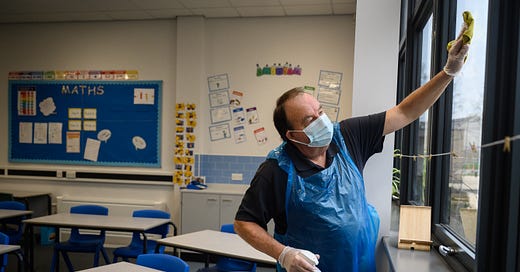

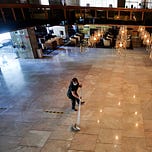


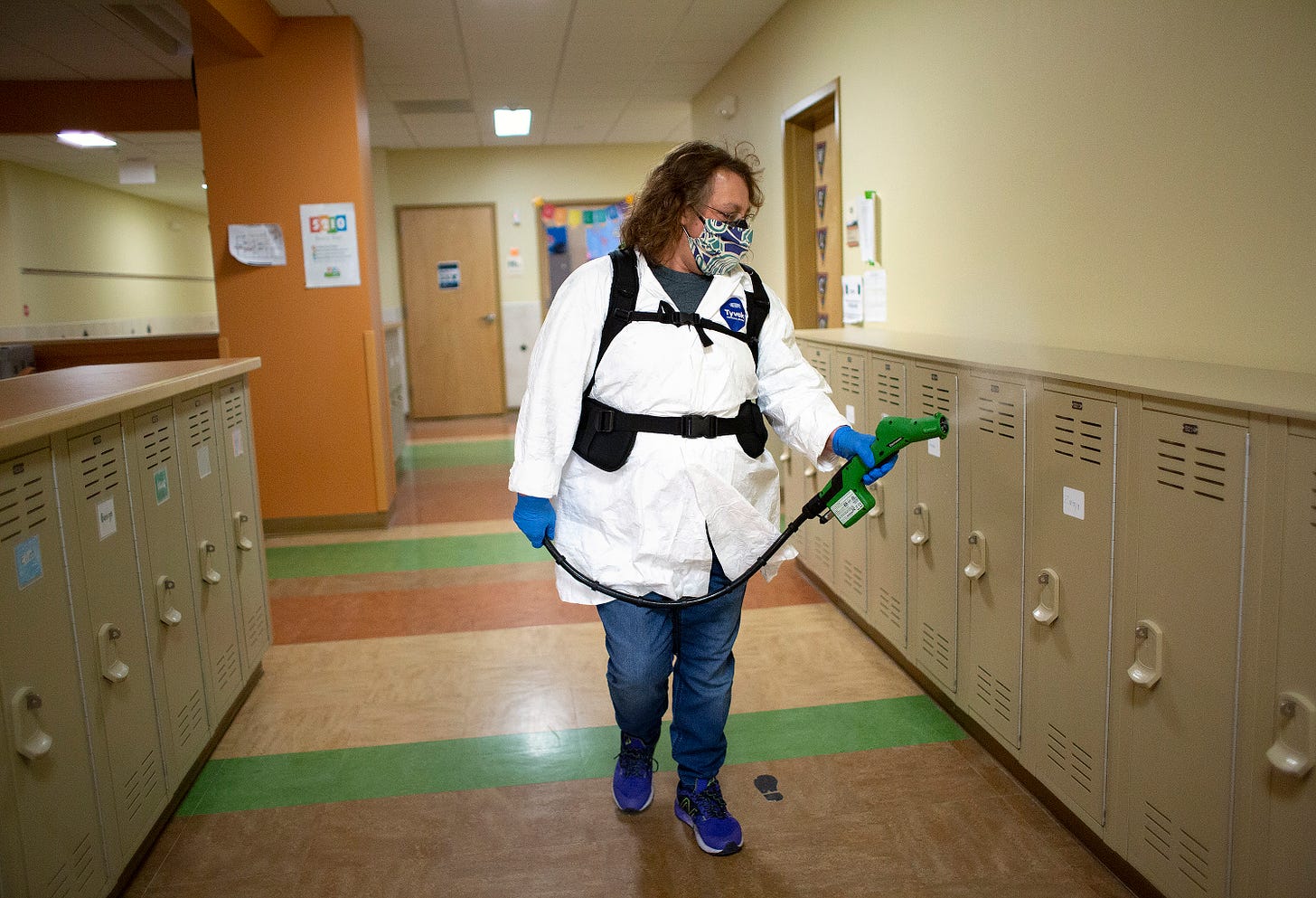
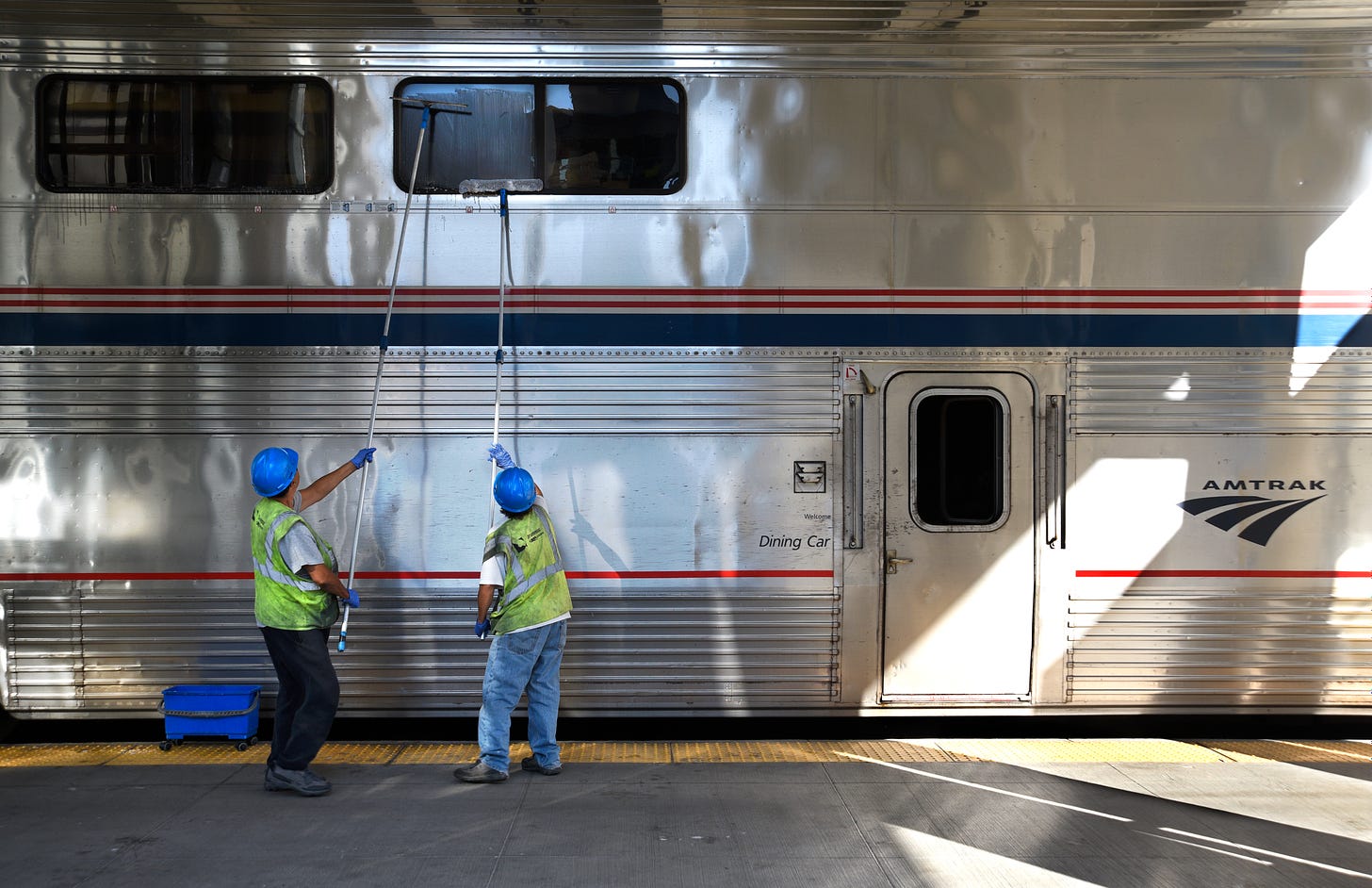

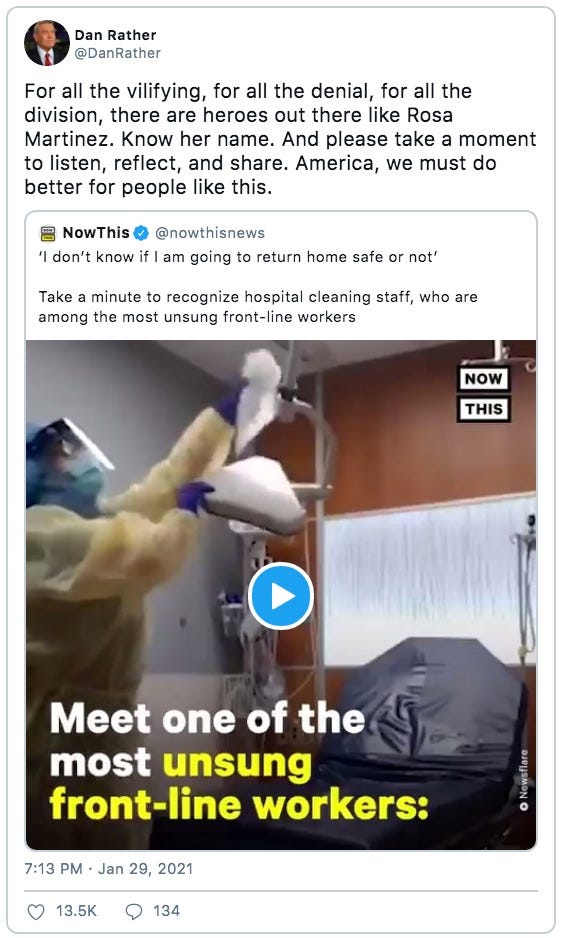
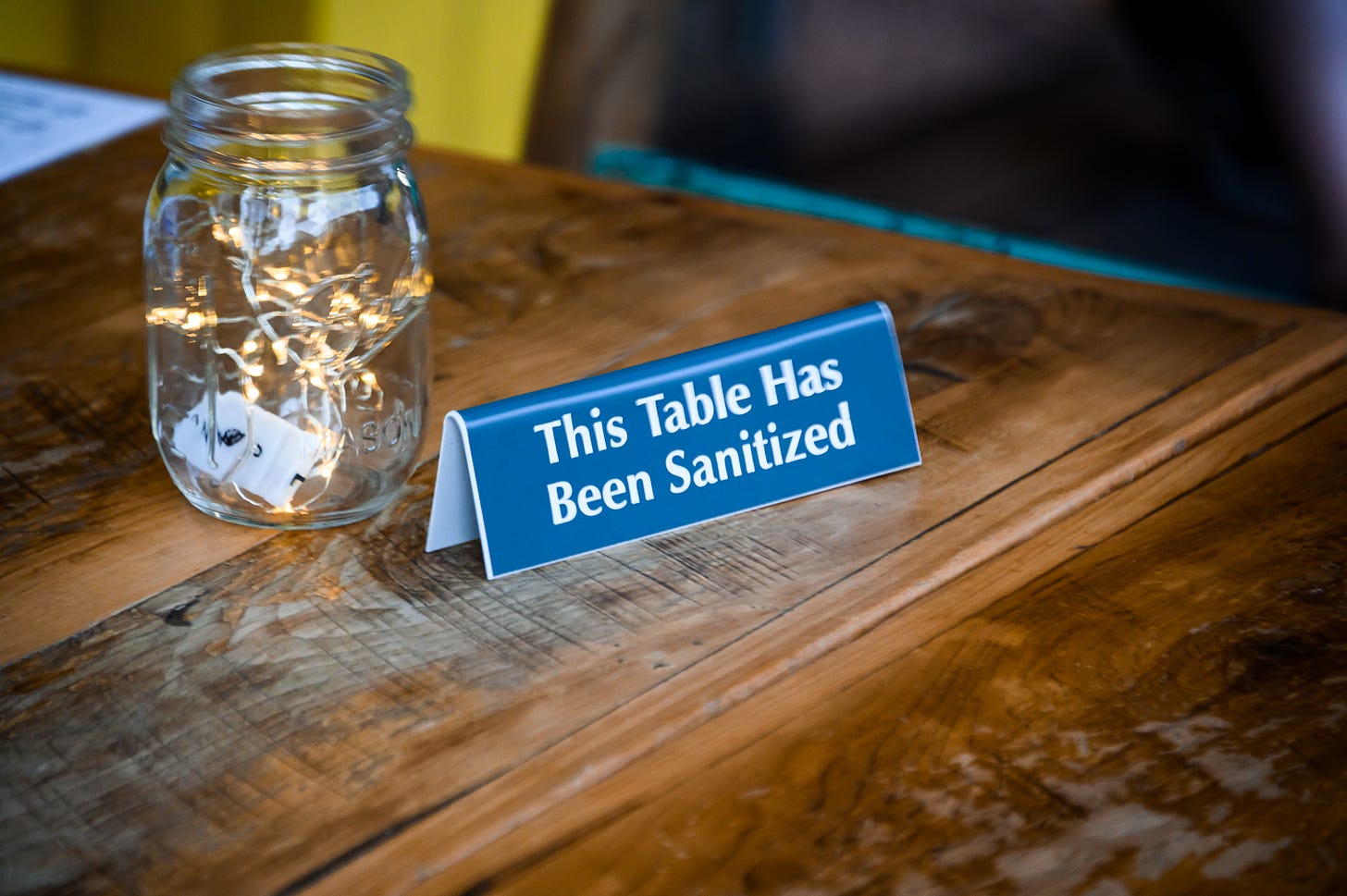





Share this post